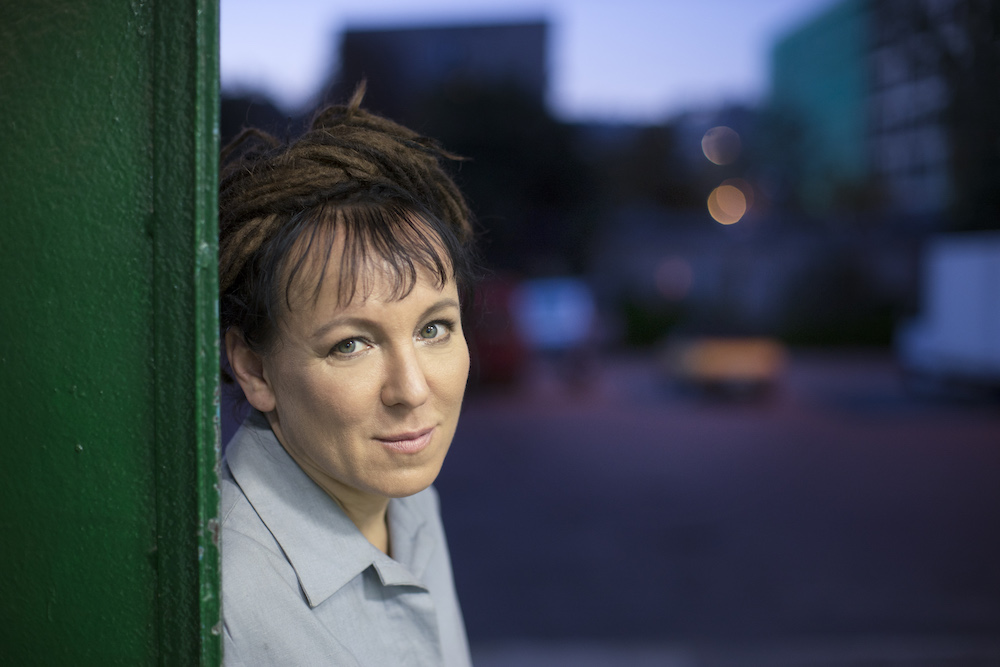I’ve been saying it for years! Every fall, the big night would come and I would set my alarm for four or six or eight in the morning, depending on my time zone, and then not sleep because I was sure Olga Tokarczuk would win the Nobel Prize in Literature. This year it happened! At 4 A.M.
High time, and perfect time. Olga has been charting her own course since the first. She has gone boldly wherever her curiosity led, never daunted by boundaries, be they constraints of genre—as in the case of Flights (first published in Poland in 2007), a “constellation novel,” to use Olga’s own term, that might not be a novel at all—or political and linguistic—as in the case of The Books of Jacob (2014), Olga’s twelfth and latest novel, which I am translating right now. It is this intrepid methodology, combined with her firm commitment to the reader’s engagement and enjoyment, that has brought her in line with some of the world’s most pressing current concerns.
The Books of Jacob is a monumental novel that delves into the life and times of the controversial historical figure Jacob Frank, leader of a heretical Jewish splinter group that ranged the Habsburg and Ottoman empires and the Polish-Lithuanian Commonwealth seeking basic safety as well as transcendence. Considered by many to be her masterpiece, The Books of Jacob is also a suspenseful and entertaining novel that remained a national best-seller for nearly a year after its release.
Although set in the eighteenth century, The Books of Jacob invokes a decidedly twenty-first century zeitgeist. It encourages its readers to reexamine their histories and reconsider their perspectives on the shape Europe will take in coming years. In its plot and characters, it celebrates and problematizes diversity. It subtly participates in the debates dividing Europe—and the world—on how to protect tolerance, how to define intolerance, how to set and abide by the limits of contemporary sovereignty, and how to handle an influx into Central Europe of refugees in both practical and moral terms.
Working as one of Olga’s translators for the past fifteen years has been challenging only insofar as Anglophone publishing houses have been slow to see the commercial appeal of her work. Always wary of outsiders, the editors I approached in New York would often tell me that Olga wasn’t quite right for an American audience, regardless of how popular she might be in Europe. My efforts to pitch Olga’s books, give her a social media presence in English, and apply for grants have always taken up far more time and energy than have the translations themselves.
Olga’s work is crystal clear: her characters live on the page and speak for themselves, and her tone and intentions are equally easy to grasp, transform, and transmit. While she is always ready to help should I (or any of her other translators) have questions, she is also too eager to keep breaking ground on new books to micromanage the old ones in languages that aren’t her own. It is a treat to see her in person, as I do once or twice a year, and to watch as she is inevitably approached, then circled by admirers, all drawn in by her warmth and insightfulness, her alacrity and wit.
I’m ecstatic that so many more readers will now discover the entire trove of literature Olga has created over the course of her thirty-year career. Olga is the Nobel laureate. She’s the one the prize was made for.
Jennifer Croft is the author of Homesick, out now from Unnamed Press. Her translation of Olga Tokarczuk’s Flights won the International Booker Prize in 2018.
from The Paris Review https://ift.tt/2B2Ix2M

Comments
Post a Comment